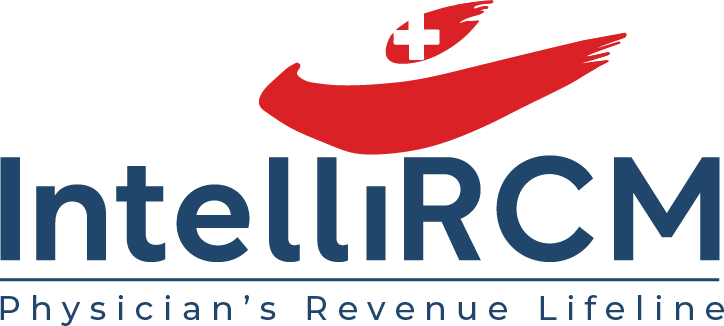By intellircm
12th Jan 2022
Blog
Medical billing is essential for any medical institution because any hospital or medical entity that collaborates with insurance companies cannot properly function without on-time and deserved payouts. In addition, this multilevel healthcare process helps you to get payments from health insurers, which includes resolving any disputes and subsequent claims that have been delayed or denied.
Payment posting in medical billing is a complex and time-consuming procedure that requires skilled professionals from the medical providers’ office to review all information and submit it on time for proper claim reimbursement.
How exactly does the payment posting process take place? What are the main things to consider while conducting this procedure? What pitfalls should you avoid while performing the payment posting process? Read on.
What Is Payment Posting in Terms of RCM?
Payment posting in medical billing is the phase of processing information about services rendered to a healthcare patient intended to send data from the insurance company to the provider's office to close the claim. This process is to tally the account of the patient's claims and get the correct A/R and Aging.
This step includes collecting data on the denied claims and working on those data immediately to fasten the payment process.
What Are the Essentials To Conduct an Accurate Payment Posting?
The two main pillars for accomplishing accurate payment posting are EOBs (Explanations of Benefits) and
ERAs (Electronic remittance advice). Let’s talk about each of these terms in detail.
The former — an EOB is a report from an insurance company containing information about all financial transactions and services that are covered by the patient's health insurance coverage. The insurance company generates this report when a healthcare provider files a claim for services rendered. The insurance company sends the data on the cost of treatment and medical expenses covered by the health insurance company, and the amount the insurer does not cover.
Information provided in the report may include, but is not limited to, the following:
- A list of the medical services received
- The name of the healthcare provider, i.e., the name of the medical facility or individual practitioner
- The total cost of the services
- The amount of money saved by using the services of the medical insurance company
- The amount covered by the health insurance plan
- The amount that not covered by the health insurance plan
- Any unsettled amount that the patient is required to pay on their own
- If there are any services denied then denial with reason code and description.
An ERA is a digital counterpart to EOBs, which follow the exact purpose of sending an accurate statement of charges to a healthcare provider after conducting proper medical care and explaining how the health plan has adjusted the cost of the claim.
The medical provider and patient should check the data provided by these tools and the medical billing services to maintain a smooth payment posting process and the proper operation of claim reimbursement.
What Are the Advantages of Payment Posting in Healthcare RCM?
The payment posting process affects many other medical office functions and significantly impacts patient satisfaction, efficiency, and overall financial performance. There are four undeniable benefits of providing the accurate payment posting:
1. Enables a Simplified Revenue Cycle Analysis
Most healthcare providers focus on filling out claims data correctly, which is essential in the entire financial operation process. However, it is also a good practice to pay attention and take the time to examine the claims adjudication process in detail.
Even though claims processing is not the responsibility of the medical institution, performing a practical analysis assists in optimizing all of the clinic's internal processes. The medical practice can identify weaknesses, eliminate staff errors, delegate, and properly allocate areas of responsibility, thereby increasing profitability and financial strength.
2. Helps Identify and Eliminate Recurring Issues
In both medicine and insurance, prevention is the most effective strategy for dealing with challenges. Since all links in the healthcare cycle management are interconnected, providing inaccurate or irrelevant data at one stage will directly lead to issues and denials at subsequent stages of claims processing.
It is vital to monitor all transactions in
the healthcare revenue cycle management services to identify recurring errors and correct them to facilitate claim reimbursement and prevent similar problems in follow-up cases.
Accurate data reporting is an essential part of payment processing, contributing to a seamless claims resolution and obtaining all benefits at the final stage of the claims process.
3. Reduces Claim Reimbursement Time
With a well-established payment process, healthcare providers can identify problems at the outset of claims processing in the healthcare revenue cycle management. Focusing on payment posting and working toward process improvements makes it possible to speed up and automate the claim processing.
Coding, medical billing, and patient insurance policies are subject to constant changes and updates. The use of up-to-date information reduces the time it takes to process insurance claims and serves as one of the primary methods of obtaining prompt claims payments. Incorrect data processing affects the length of time it takes for the insurance company to settle a claim.
This is why accurate payment posting in medical billing can fix any issues before they become critical and result in more severe consequences and the involvement of more practice staff and insurance agents. These adjustments will lead to an overall improvement in financial performance and faster claim reimbursement.
4. Facilitates the Processing of a Large Amount of Data
Insurance companies reject most medical claims due to inaccuracies and inconsistencies of data provided by medical facilities. In addition, health insurance representatives deal with large amounts of data daily, so it is essential to provide the correct data for claims processing to optimize all billing processes automatically.
Getting Efficient Support in Payment Posting Is Real
Efficient payment posting in medical billing is the biggest challenge that healthcare facilities and medical billing companies face daily. However, to improve the quality of medical services and contribute to high-quality medical care, it is important to delegate financial issues to professionals.
At IntelliRCM, we are committed to helping you with any billing or financial issues so that you can take care of your patients while we take care of the rest.
To learn more about the importance of payment posting in medical billing, contact us by phone, email, or
fill out the contact form on our website here.






